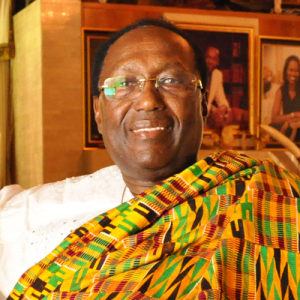Chris Kiribu who was born in Kenya, is a Kenyan entrepreneur, an industrialist, and a philanthropist. He is a Director of Centum Investment Company Limited, a business conglomerate, in which he is the largest individual shareholder. He made millions in insurance, media, manufacturing and other investment.
Chris wants to empower African youth to be the change they desire and create their own jobs rather than working for others.
In a CNN Africa tweet chat on entrepreneurship, Chris kiribu said young people yearn to be independent and become successful entrepreneurs. But African start-up pioneers must ask themselves some key questions.
“No one wants to be employed forever and in Africa, we have so much potential and unexploited opportunities,” he said, according to a report published by CapitalFM. “It is time young people got the urge to actually be the change they desire; that is the only way we will thrive as a continent. If you ask me, the choice of being wealthy is totally in your hands. You decide to get up and do something about your life or let someone do it for you.”
Here are Chris Kiribu’s responses to questions generated by the CNN African Start-Up team:
Question 1: What kind of person makes a successful entrepreneur? What skills or qualities do they need to have? #CNNAfrica
Kiribu: A successful entrepreneur needs to be informative, he or she must know how to manage and interact with people in order to get the right results because, at the end of the day, you will be gauged according to your outcome. He or she needs to have a vision and get the right people who will understand and help them pursue that vision.
They also need to be committed, focused and have the urge to constantly seek for knowledge. An entrepreneur should also be willing to take calculated risks because nothing comes easy.
Question 2: If you were to launch a start-up in Africa today, what sector would you target?
Kiribu: I would go into property development. The need for housing in Africa is much greater than what is currently available. A majority of the population is in need of adequate housing; a decent place to live. I would also invest in the ICT sector because technology is the future for Africa and is constantly in use and Agriculture. We need to feed our huge population and most of Africa has great climatic conditions for farming and a lot of unused lands. Renewable energy and green energy would be another so that I can prove that it’s not as expensive as people think especially long term. As Africa, we could benefit a lot from this.
Question 3: What is the best way to attract funding and expand your start-up? #CNNAfrica
Kiribu: I believe the best way to attract funding is to have a clear business plan that shows your project is valuable and is going to succeed. No one wants to invest in a business that shows no signs of a great return. Investors also want to see that you too are knowledgeable and have discussed options to get resources needed to implement your startup or project.
Question 4: So, you’ve found funding, but how do you know if you’ve selected the right investors? What do you need to ask them? #CNNAfrica
Kiribu: Now this is where you draw the difference between a true entrepreneur and a person who just wants to get wealthy. The former has the skill and desire to grow the business first and its people. Thus he/she will know what to look for (if their vision relates to yours), they will be well informed, have done their research; know how to prod and to identify a true investor vis-à-vis a con.
Question 5: What are the biggest challenges for African entrepreneurs today and how can they deal with them? #CNNAfrica
Kiribu: Penetrating markets is definitely a big challenge, the lack of financial support by banks and other financial institutions, lack of research, development and technology, mentorship and political goodwill/leadership. It is rather unfortunate that the issue of intellectual property rights also poses a great challenge because many young people come up with great ideas and concepts only for them to be stolen by the same people who are meant to be protecting them. On the other hand, Africans have to compete with market prices from other parts of the world because of a lack of access to local markets and government support in the selling of produce.
Question 6: How can entrepreneurs tackle these problems? #CNNAfrica
Kiribu: We can handle this problem by trying to understand our markets and investing more in research to produce quality and quantity. On the other hand, we need to stiffen our trading policies and enhance government policies in some of these areas. Entrepreneurs can also rally behind the Private Sector alliances and put pressure on local governments and convince them to assist in addressing some of these issues.
Question 7: Should entrepreneurs go to university or get straight into business if they think that’s a better career choice? #CNNAfrica
Kiribu: Preferably…. I believe getting an education is crucial before getting into business but what is more important is equipping yourself with the right information and that can be done through self-education. Knowledge is key and one must understand market dynamics in order to become successful.
Now, if for some reason one cannot get a university education then it does not mean you will not be a great entrepreneur or successful. You, however, must find a way to keep acquiring knowledge. Learn on the go. One never stops learning. I always read books to refresh my knowledge and I have learned a lot on the job and from others.
Question 8: What are the key elements of a successful business plan? #CNNAfrica
Chris Kiribu: The key thing here is clearly stating, understanding and knowing how to implement the project. Let your business be practical, realistic and have a long-term vision. Can it sustain itself regardless of the economic situation over the years?
All the components; financial, human resource and market dynamics should be clearly stated and understood and display technical know-how.
Question 9: How important is finding a mentor when it comes to growing your start-up? #CNNAfrica
Chris Kiribu: It is important to have a person or company you look up to or that you will emulate. Find one in the same line of business to give you the knowledge and guidance to move ahead. You cannot find success alone, you must work with others…so whether you call them mentors, business friends or associates, have people around you to assist and advise you.
I always say a mentor is important… It’s like a sheep with its shepherd. The sheep will not get lost because it will be directed on where to go. You too won’t get lost.
Question 10: What do you love most about life as an entrepreneur? #CNNAfrica
Chris Kiribu: The satisfaction and fulfillment when you look around and see that you have made life simpler for someone out there and continue to improve the livelihoods of those working for you (creating employment) is what keeps me alive as an entrepreneur. The dynamism, change, and unpredictability of environments and situations make it challenging but fun. Something I was doing 10 years ago, or even two years ago, is not the same but different. I wake up and no one tells me what to do but myself. I push myself out of that bed each morning knowing that I have to struggle to make someone’s life better and in turn my life better.
Question 11: What is your message to Africa’s aspiring entrepreneurs?
Chris Kiribu: They must commit themselves to developing Africa. Be honest so that people depend on you. Never take short cuts to succeed. You have to pay the price but never let money limit you. Go out and look for it. Use the minimal resources you have to change your life and that of those around you.
Be vigilant in what it is you want to do. Take heed of opportunities and have the passion for succeeding. Nothing great comes easy and Magatte Wade and I didn’t wake up successful. We worked our way up and took calculated risks. You too must do the same.
Remember, your financial wealth is defined by how and where you spend the little resources you have. And it all starts in the mind. You are a by-product of your thoughts. Think rich and you become rich, think poverty you eventually remain in poverty.
Keep educating yourself because it is better to have information and not need it than to require it and not know it. Make sure that 10% of your time is spent actively pursuing your most cherished thoughts & goals. Success is a journey, take it!
To those who are young at heart like myself, Africa is yearning for success and is in urgent need of mentors from experienced ‘fathers & ‘statesmen’. Let’s help the young people of Africa.
Was Chris Kiribu comment inspiring enough? And what is your take on his current crusade and the impact it would have towards the African youth? Share your opinion with us in the comment section.
(Source: www.afkinsider.com)




3 comments